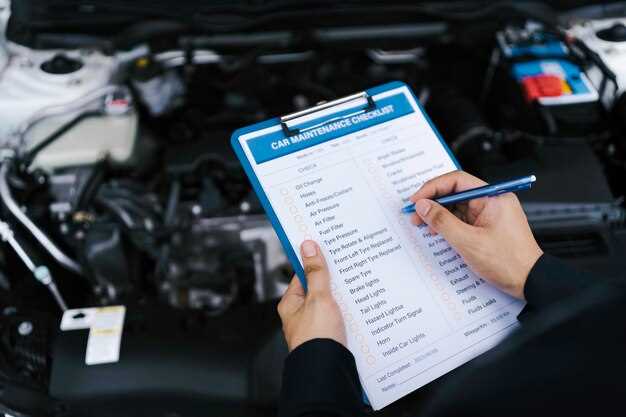
Regular maintenance is crucial for ensuring the longevity and efficiency of diesel trucks. Monthly checks play a vital role in identifying potential issues before they escalate, providing truck owners with peace of mind and minimizing repair costs. These systematic inspections help to maintain optimal performance and safety on the road.
During each monthly check, operator should focus on key components, including the engine, brakes, and fuel systems. This proactive approach not only enhances the truck’s reliability but also contributes to better fuel economy, ultimately impacting the bottom line for businesses that rely on these vehicles.
Incorporating a thorough checklist for these monthly maintenance checks will ensure that no crucial areas are overlooked. By staying on top of maintenance tasks, owners can maximize their investment in diesel trucks and maintain high operational standards, thus ensuring safe and efficient transportation of goods.
Inspecting and Maintaining Engine Oil Levels

Regular checks of engine oil levels are crucial for the performance and longevity of diesel trucks. Engine oil plays a vital role in lubricating components, reducing friction, and dissipating heat. Insufficient oil can lead to severe engine damage, reduced efficiency, and ultimately costly repairs.
Begin by ensuring the truck is parked on a level surface. This position allows for an accurate reading. Utilize the dipstick to measure the oil level, making sure to wipe it clean before inserting it back into the tube. Remove the dipstick again and check the fluid level against the marked indicators. If the level is below the recommended threshold, it is essential to add oil that meets the manufacturer’s specifications.
In addition to checking levels, inspecting the oil’s condition is equally important. Look for signs of contamination, such as a milky appearance, which indicates possible coolant leakage. Dark, sludgy oil may suggest that it needs changing. Regular oil changes help maintain optimal performance and keep engine components in good condition.
Moreover, monitoring other fluids is also part of comprehensive maintenance. Ensure that other essential fluids, such as coolant, brake fluid, and transmission fluid, are also at appropriate levels. This holistic approach to fluid maintenance can prevent potential failures and ensure the diesel truck operates smoothly.
In summary, routine inspections and maintenance of engine oil levels, alongside other fluid checks, are fundamental in achieving reliable performance and extending the life of diesel trucks. Neglecting these maintenance checks can result in serious issues that could have been easily avoided.
Evaluating Fuel and Coolant Quality
Regular checks of fuel and coolant quality are crucial for the optimal performance of diesel trucks. The condition of these fluids directly impacts engine efficiency, longevity, and overall reliability.
For fuel evaluation, it is essential to inspect for contaminants such as water, dirt, and microbial growth. Water in fuel can cause severe engine damage and operational issues. Conducting a simple sediment test can help identify these impurities. Additionally, checking the fuel’s cetane number provides insight into its combustion quality; higher cetane numbers typically result in better engine performance.
Coolant quality assessment focuses on pH levels and concentration. An ideal coolant should have a pH between 7 and 9 to provide effective corrosion protection. New coolant should be tested to ensure it meets manufacturer specifications and contains the appropriate levels of additives. A refractometer can be used to measure freeze and boil points, ensuring the coolant will perform well under varying temperatures.
Both fluids should be regularly replaced according to the manufacturer’s guidelines. Neglecting these maintenance checks can lead to engine overheating or fuel system failures, resulting in costly repairs and downtime.
In summary, maintaining high-quality fuel and coolant not only enhances engine performance but also contributes to the longevity and efficiency of diesel trucks. Regular evaluations of these fluids are essential components of a comprehensive monthly maintenance plan.
Checking Transmission and Hydraulic Fluid Conditions

Regular checks of transmission and hydraulic fluids are essential for maintaining the performance and longevity of diesel trucks. These fluids play a critical role in the operation of the vehicle, helping to ensure smooth gear transitions and efficient hydraulic operations.
Transmission Fluid Checks: Begin by inspecting the transmission fluid level. This can be done using the dipstick (if equipped) while ensuring that the engine is warm and running. The fluid should be within the designated range on the dipstick. If the fluid is low, it’s vital to add the appropriate type of transmission fluid recommended by the manufacturer.
Next, examine the condition of the fluid itself. Healthy transmission fluid should appear bright red and have a slightly sweet smell. If it looks dark, gritty, or smells burnt, a fluid change is necessary. Additionally, conducting a visual inspection for any leaks around transmission lines and seals is crucial to prevent further issues.
Hydraulic Fluid Checks: Similar to transmission fluid, hydraulic fluid should be checked regularly. Start by locating the hydraulic fluid reservoir and confirming that it is within the proper level markings. Consistently low fluid levels may indicate a leak or a need for routine maintenance.
Assess the hydraulic fluid for clarity and color. Clean hydraulic fluid is typically a clear or slightly amber color. If the fluid is contaminated with dirt or has changed to a milky appearance, it may require replacement. It’s also important to check the filter and lines for any signs of wear or damage, ensuring that the entire hydraulic system is functioning efficiently.
In summary, conducting thorough checks on transmission and hydraulic fluids involves monitoring levels, assessing fluid condition, and inspecting for leaks or damage. These maintenance practices are vital to ensuring the reliable operation of diesel trucks and avoiding costly repairs down the road.




